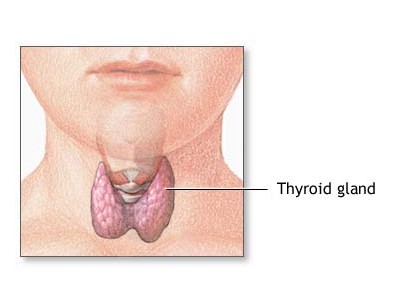Hyperthyroidism occurs as a result of too much thyroid hormone production. It is much less common than Hypothyroidism which occurs 5 times more often. The symptoms listed below are the most common for hyperthyroidism. These may also occur if you are being treated with thyroid replacement hormone for hypothyroidism.
• Fatigue • Easy exhaustion • Dizziness • Weakness • Muscle weakness • Muscle wasting
• Sudden paralysis • Hand tremor / shaking • Heat intolerance • Flushing / blushing
• Clammy skin • Increased sweating • Nervousness / Anxiety • Difficulty concentrating
• Restlessness • Irritability / agitation • Sleep problems • Feeling wired or caffeine jagged
• Weight loss • Difficulty gaining weight • Increased appetite • Frequent bowel movements
• Nausea / vomiting • Diarrhea • Light menstrual periods • Irregular menstrual periods
• Lack of menstrual period • Infertility • Fine brittle hair • Hair loss • Skin thinning
• Increased itching scalp / overall • Protruding eyes • Red swollen eyes
• Excessive tearing • Light sensitivity • Double vision • Fingertip clubbing
• Goiter • Thyroid nodules • Shortness of breath • Palpitations
• Rapid heartbeat • Irregular heartbeat • Increased blood sugar • High blood pressure
• Premature ejaculation / orgasm • Breast development in men
Hyperthyroidism may potentially be a much more serious and urgent condition than hypothyroidism. Thyroid storm or thyrotoxic crisis is rare but potentially life-threatening. High fever (> 40◦C / 104◦F), fast irregular heartbeat, vomiting, diarrhea, agitation, heart failure, heart attack, and sudden death are characteristic. These signs / symptoms in anyone and especially someone with known hyperthyroidism should prompt an immediate call to 911 or trip to the emergency room.
If you think you may be hyperthyroid, you can download, complete, save and email the Hyperthyroid Risk Questionnaire to [email protected] or call 727-202-6807 if you have questions or to make an appointment. If you are unable to fill this form because you have Word 2007 or before try downloading the Microsoft Office Compatibility Pack for Word, Excel and PowerPoint Open XML File Formats.
Additional information on thyroid may be found on this site: Signs & Symptoms of Hypothyroidism, Thyroid Testing, Am I Hypothyroid?




0 Comments